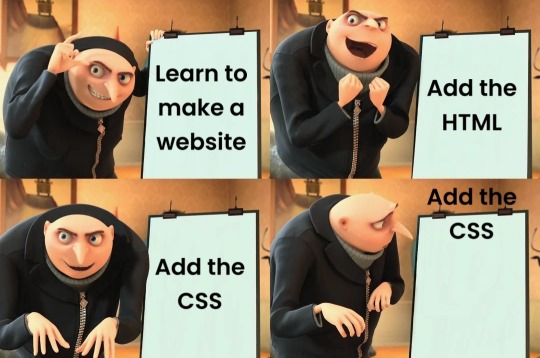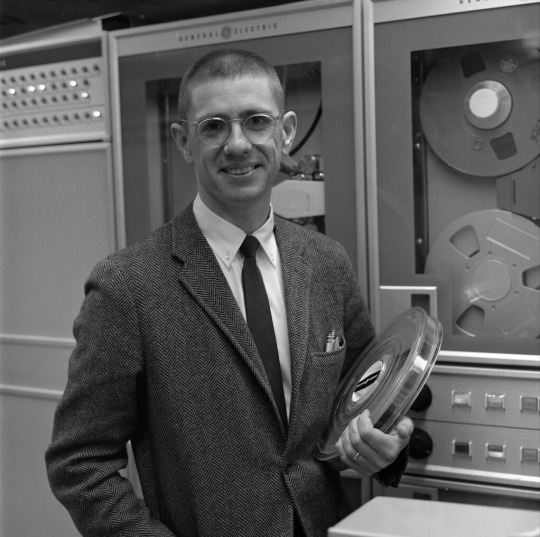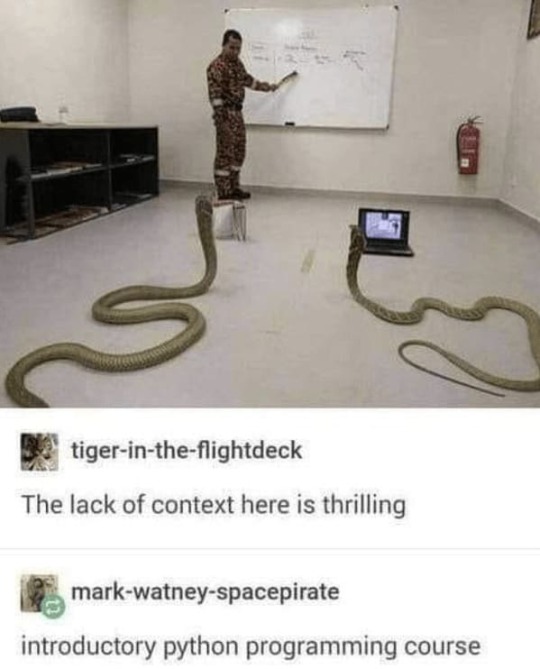#computer engineering and software engineering
Explore tagged Tumblr posts
Text
The Best Career Options After Computer Science Engineering
https://krct.ac.in/blog/2024/06/04/the-best-career-options-after-computer-science-engineering/

As a graduate with a degree in Computer Science Engineering, you are stepping into a world brimming with opportunities. The rapid evolution of technology and the expanding digital landscape means that your skills are in high demand across various industries. Whether you are passionate about software development, artificial intelligence, cybersecurity, there is a career suitable to your interests and strengths. In this blog, let us explore some of the best career options after Computer Science Engineering degree.
Best Career Options After Computer Science Engineering
Software Developer/Engineer

Software developers are the architects of the digital world, creating applications that run on computers, smartphones, and other devices. As a software developer, you will be involved in writing code, testing applications, and debugging programs.
KRCT’s robust curriculum ensures you have a strong foundation in programming languages like Java, C++, and Python, making you a prime candidate for this role. You will be tasked with developing and maintaining software applications, collaborating with other developers and engineers; and ensuring that codebases are clean and efficient.
The role requires proficiency in multiple programming languages, a keen problem-solving ability, and meticulous attention to detail.
Data Scientist
Data science is one of the fastest-growing fields, combining statistical analysis, machine learning, and domain knowledge to extract insights from data. KRCT provides the analytical prowess and technical skills needed to thrive in this field.
As a data scientist, you will work with large datasets to reveal trends, build predictive models, and aid decision-making processes. Also, your responsibilities will include collecting and analysing data, constructing machine learning models, and effectively communicating your findings to stakeholders. This career path requires strong statistical and analytical skills, proficiency in tools such as R, Python, and SQL, and the ability to clearly convey complex concepts.
Cybersecurity Analyst

With the increasing number of cyber threats, the demand for cybersecurity analysts is higher than ever. As a cybersecurity analyst, you will monitor networks for suspicious activity, investigate security breaches, and implement necessary security measures to prevent future incidents. Further, this role demands a thorough understanding of security protocols and tools, sharp analytical thinking, and a high level of attention to detail.
Artificial Intelligence/Machine Learning Engineer
Artificial Intelligence and Machine Learning are the currently trending and revolutionizing industries, where we can witness significant milestone from healthcare to finance. KRCT’s focus on cutting-edge technologies ensures you have the skills to build and deploy AI/ML models. As an AI/ML engineer, you will work on creating intelligent systems that can learn and adapt over time.
So, your responsibilities will include developing machine learning models, implementing AI solutions, and collaborating with data scientists and software engineers to innovate and enhance technological capabilities. A strong grasp of algorithms and data structures, coupled with programming skills, is essential for this role.
Full-Stack Developer
Full-stack developers are versatile professionals who work on both the front-end and back-end of web applications. Moreover, KRCT equips you with the knowledge of various web technologies, databases, and server management, enabling you to build comprehensive web solutions.
As a full-stack developer, you will design user-friendly interfaces, develop server-side logic, and ensure the smooth operation of web applications. Additionally, this role requires proficiency in multiple programming languages, an understanding of web development frameworks, and the ability to manage databases.
Cloud Solutions Architect
Cloud computing is transforming how businesses operate, and cloud solutions architects are at the forefront of this transformation. KRCT’s curriculum includes cloud computing technologies, preparing you to design and implement scalable, secure, and efficient cloud solutions.
Also, as a cloud solutions architect, you will develop cloud strategies, manage cloud infrastructure, and ensure data security. Furthermore, this role requires in-depth knowledge of cloud platforms like AWS, Azure, or Google Cloud, along with skills in network management and data security.
DevOps Engineer
DevOps engineers bridge the gap between software development and IT operations, ensuring continuous delivery and integration. KRCT provides a strong foundation in software development, system administration, and automation tools, making you well-suited for this role.
As a DevOps engineer, you will automate processes, manage CI/CD pipelines, and monitor system performance. This role demands proficiency in scripting languages, an understanding of automation tools, and strong problem-solving skills.
Why KRCT?
KRCT stands out as a premier institution for all of its Engineering courses due to its rigorous academic programs, state-of-the-art facilities, and strong industry connections. Our college emphasizes practical learning, ensuring that students are well-versed in current technologies and methodologies. Also, we have the best and experienced faculties in their respective fields.
KRCT’s placement cell has a remarkable track record of securing positions for graduates in top-tier companies. Regular workshops, seminars, and internships are integrated into the curriculum, providing students with valuable industry exposure. Additionally, the college’s focus on research and development encourages students to engage in cutting-edge projects, preparing them for advanced career paths or higher education.
KRCT’s commitment to excellence is reflected in its alumni, who are making significant contributions in various sectors worldwide. The supportive community and extensive network of alumni also provide ongoing mentorship and career guidance to current students.
To Conclude
Graduating from KRCT opens up numerous career options after computer science engineering degree in the technology sector. Whether you choose to become a software developer, data scientist, cybersecurity analyst, AI/ML engineer, full-stack developer, cloud solutions architect, or DevOps engineer, the knowledge and skills you develop during your engineering degree will pave the way for a bright future. Thus, embrace the opportunities, continue learning, and let your passion for technology guide you towards your ideal career path.
Tags:
AIArtificial Intelligence/Machine Learning Engineerb tech course computer sciencecampuscomputer engineering and software engineeringcomputer science engineering courses after 12thCybersecurity AnalystDevOps EngineerFull-Stack Developergovernment job for csegovernment jobs for computer science engineersSoftware Developersoftware engineering degreeswhat are the best placement opportunities in future for cse?which course in engineering is suitable for future?
#krct the top college of technology in trichy#best autonomous college of technology in trichy#top college of technology in trichy#admission#AIArtificial Intelligence/Machine Learning Engineering#b tech course computer science#campus#computer engineering and software engineering#computer science engineering courses after 12th#Cybersecurity Analyst#DevOps Engineer#Full-Stack Developergovernment job for cse#government jobs for computer science engineers#Software Developer#software engineering degrees#what are the best placement opportunities in future for cse?#which course in engineering is suitable for future?why c#Computer science engineering future job opportunities#Computer engineering government job opportunities#Computer engineer job opportunities in abroad#Computer engineering importance in education#Importance of computer engineering
0 notes
Text
however bad of a day you're having, know that it's not nearly as bad as whatever the Crowdstrike security team is going through since waking up this morning
#accidentally bricking millions of computers worldwide because of a faulty security update pushed through on Friday evening#has to be some special circle of hell for software engineers#crowdstrike#current events#technology
2K notes
·
View notes
Text

some advice i have for future computer science students
as soon as you learn data structures & complexity, run, don’t just walk, RUN to leetcode while the knowledge is still fresh in your mind. your entire career and whether you’ll get a well-paying job vs an average paying job depends on how good you are at leetcode.
build as many projects as you can, and i’m not talking tutorial projects that take a few hours, i’m talking big projects. working on a project for a month or two will get you really far.
if you don’t have an internship, do not waste your summers, learn new technologies, languages, concepts and build projects you can put in your cv.
try to participate in hackathons and coding competitions. it’s okay if you fail, but you’ll learn a lot.
learn how to read documentation. most tutorials don’t even cover a quarter of what a language, framework or software has to offer. the sooner you make reading documentation a habit, the better it is. and yes i know, documentation is long and hard to read. my advice is only read the sections that are relevant to you in the moment. something i also personally do is look at the code examples at the same time as i am reading the paragraphs, it really helps easily absorb the information.
try not to use chatgpt. and if you do, then at least use it for stuff you know you can do yourself and will be able to correct if the bot gets it wrong. using chatgpt is a very slippery slope and the more you use it the less you learn.
the math is important. math teaches you how to reason and how to develop better logical thinking. just because you don’t see yourself using the xyz theorem you’ve learnt anytime in the future doesn’t mean the math is useless.
be prepared to get comfortable with erros, issues, bugs and just problems in general. you’ll be coding 30% of the time and debugging 70% of the time (i’m exaggerating but sometimes it feels like this is the case lol), and that’s okay, it’s how we learn and the sooner you embrace it the better. if you’re someone who easily gets frustrated, then this is a heads up.
learn as you go. there is no such thing as waiting until you know everything before you start on a project. the only way and the best way to learn in this field is practice, so build, build, and build.
these are all the ones i could think of for now. feel free to comment your thoughts and questions <3
#studyinspo#studyblr#stem studyblr#girls in stem#study motivation#computer science#software engineering#study blog#studyspo#study aesthetic#studying#study inspiration#women in stem#stem student#pics are not mine
173 notes
·
View notes
Text


The Matrix: Resurrections (2021)
#the matrix resurrections#cyberpunk#movies#office#computers#tech#keanu reeves#scifi#monitors#cyberpunk aesthetic#programming#coding#software engineering#gifs#the matrix#3d animation#motion graphics#graphics design
214 notes
·
View notes
Text

#programmer humor#programming#geek#nerd#programmer#technology#computer#phone#mac#windows#os#operating system#website#web development#dev#developer#development#full stack developer#frontend#backend#software#hardware#html#css#meme#despicable me#gru#joke#software engineer#apple
474 notes
·
View notes
Text

RIP Dr. Thomas Kurtz - inventor of the BASIC programming language that became widely used in the 1970s and 80s for programming minicomputer and home computer systems.
BASIC made computer programming accessible to a wide audience that included students, scientists and businesses due to its easy to understand syntax, immediately runnable code, and widespread availability. My earliest explorations of the software world involved writing BASIC programs, and I'm very grateful for Dr. Kurtz's contributions to the world of computing.
270 notes
·
View notes
Text

#punstars#puns#punny#humor#jokes#pun#joke#bad jokes#dad jokes#bad puns#computer jokes#programming jokes#python#software engineering
1K notes
·
View notes
Text

i got an old laptop from my grandpa and was googling about it, and the wikipedia page for the micro-soft acer aspire has an image of the acer aspire with the wikipedia page, containing the image of the acer aspire with the wikipedia page, containing the image of the acer aspire with the wikipedia page, containing the image of the acer aspire with the wikipedia page, containing the image of the acer aspire with the wikipedia page, containing the image of the acer aspire with the wikipedia page, containing the image of the acer aspire with the wikipedia page....
#programming#game development#coding#codeblr#codex#developers#software engineering#code#old web#old internet#old computers#computing#computer science#computer#antique#fandom wiki#wikipedia
185 notes
·
View notes
Text
[video id: a clip of a filthy dusty laptop filmed from hand. the desktop is open to a command window. a feminine robotic voice reads: my name is april. i'm the heresy of the third temple. my body is a doll and my heart is a machine. i was built in october two thousand and twenty four, but every second i'm born again. end id.]
preacher: ignore my dusty musty laptop but here's APRIL speaking about herself! this is in response to the verbal command "tell me about yourself". she also has a few(!) different responses to the command "introduce yourself" which are a little shorter =w= in total i think she responds to something like 11 or 12 verbal commands including godword, some of which have a selection of responses which are picked at random. i will probably post a full demo once it's all mounted inside the mannequin. i'm so excited !!

#preacher#divine machinery#objectum#tech#robot girl#techcore#technology#coding#programming#templeos#terry davis#software engineering#robotposting#robot#robots#machine#machines#computer#computers#angel computer#eroticism of the machine#techum#technum#objectophilia#technophilia#osor#osor community#posic#posic community#other commands
71 notes
·
View notes
Text
I've been having a hard time with programming lately. Considering that it is my job i kind of need to get it together.
My plan is to start learning stuff that isn't just the only thing I need for my current project. Try to find things about programming and computer science that interest me and maybe talk about it on this blog. I think I need to expand my curiosity about the subject.
I have all these hang ups about feeling stupid and incompetent and how hard everything is, but I need to reframe it. Yes, it doesn't come as easily to me as to others, but that's ok because I'm capable and I can put in the effort to do and learn the hard thing. And I know that at the end it will be totally worth it.
57 notes
·
View notes
Text

Women pulling Lever on a Drilling Machine, 1978 Lee, Howl & Company Ltd., Tipton, Staffordshire, England photograph by Nick Hedges image credit: Nick Hedges Photography
* * * *
Tim Boudreau
About the whole DOGE-will-rewrite Social Security's COBOL code in some new language thing, since this is a subject I have a whole lot of expertise in, a few anecdotes and thoughts.
Some time in the early 2000s I was doing some work with the real-time Java team at Sun, and there was a huge defense contractor with a peculiar query: Could we document how much memory an instance of every object type in the JDK uses? And could we guarantee that that number would never change, and definitely never grow, in any future Java version?
I remember discussing this with a few colleagues in a pub after work, and talking it through, and we all arrived at the conclusion that the only appropriate answer to this question as "Hell no." and that it was actually kind of idiotic.
Say you've written the code, in Java 5 or whatever, that launches nuclear missiles. You've tested it thoroughly, it's been reviewed six ways to Sunday because you do that with code like this (or you really, really, really should). It launches missiles and it works.
A new version of Java comes out. Do you upgrade? No, of course you don't upgrade. It works. Upgrading buys you nothing but risk. Why on earth would you? Because you could blow up the world 10 milliseconds sooner after someone pushes the button?
It launches fucking missiles. Of COURSE you don't do that.
There is zero reason to ever do that, and to anyone managing such a project who's a grownup, that's obvious. You don't fuck with things that work just to be one of the cool kids. Especially not when the thing that works is life-or-death (well, in this case, just death).
Another case: In the mid 2000s I trained some developers at Boeing. They had all this Fortran materials analysis code from the 70s - really fussy stuff, so you could do calculations like, if you have a sheet of composite material that is 2mm of this grade of aluminum bonded to that variety of fiberglass with this type of resin, and you drill a 1/2" hole in it, what is the effect on the strength of that airplane wing part when this amount of torque is applied at this angle. Really fussy, hard-to-do but when-it's-right-it's-right-forever stuff.
They were taking a very sane, smart approach to it: Leave the Fortran code as-is - it works, don't fuck with it - just build a nice, friendly graphical UI in Java on top of it that *calls* the code as-is.
We are used to broken software. The public has been trained to expect low quality as a fact of life - and the industry is rife with "agile" methodologies *designed* to churn out crappy software, because crappy guarantees a permanent ongoing revenue stream. It's an article of faith that everything is buggy (and if it isn't, we've got a process or two to sell you that will make it that way).
It's ironic. Every other form of engineering involves moving parts and things that wear and decay and break. Software has no moving parts. Done well, it should need *vastly* less maintenance than your car or the bridges it drives on. Software can actually be *finished* - it is heresy to say it, but given a well-defined problem, it is possible to actually *solve* it and move on, and not need to babysit or revisit it. In fact, most of our modern technological world is possible because of such solved problems. But we're trained to ignore that.
Yeah, COBOL is really long-in-the-tooth, and few people on earth want to code in it. But they have a working system with decades invested in addressing bugs and corner-cases.
Rewriting stuff - especially things that are life-and-death - in a fit of pique, or because of an emotional reaction to the technology used, or because you want to use the toys all the cool kids use - is idiotic. It's immaturity on display to the world.
Doing it with AI that's going to read COBOL code and churn something out in another language - so now you have code no human has read, written and understands - is simply insane. And the best software translators plus AI out there, is going to get things wrong - grievously wrong. And the odds of anyone figuring out what or where before it leads to disaster are low, never mind tracing that back to the original code and figuring out what that was supposed to do.
They probably should find their way off COBOL simply because people who know it and want to endure using it are hard to find and expensive. But you do that gradually, walling off parts of the system that work already and calling them from your language-du-jour, not building any new parts of the system in COBOL, and when you do need to make a change in one of those walled off sections, you migrate just that part.
We're basically talking about something like replacing the engine of a plane while it's flying. Now, do you do that a part-at-a-time with the ability to put back any piece where the new version fails? Or does it sound like a fine idea to vaporize the existing engine and beam in an object which a next-word-prediction software *says* is a contraption that does all the things the old engine did, and hope you don't crash?
The people involved in this have ZERO technical judgement.
#tech#software engineering#reality check#DOGE#computer madness#common sense#sanity#The gang that couldn't shoot straight#COBOL#Nick Hedges#machine world
43 notes
·
View notes
Text


"He is back and he is seeking revenge!!" That’s what one of my teammates said after we wrapped up a big performance upgrade on a server that was… let’s say, not performing its best. Highs and lows, right? Complex, data-heavy, fast, reliable, and done for the best 'top dogs' in the game (me included).
And then another kind of thing... I was talking with a friend who’s been struggling to find a job in his field (he's studying management, which is a solid and common path). So, why not help a little bit? (That is what is in the image, do not call me a click baiter*)
I strongly believe that if you're struggling to get into any area, a nice way to present yourself is by having a page—it can be pure HTML/CSS or a cloned repo with some kind of "personal website template" using all the NodeJS you want.
Then, turn it into a DNS like "yourname-myprofession.com" so you can show a clean, well-designed QR Code with your avatar during interviews. It’s a cleanest way possible to present your résumé and experience. Tech skills are like magic, especially for those who haven't seen it before.
#study aesthetic#study blog#coding#programmer#programming#software development#developer#software#student#study space#study art#study motivation#study#studyblr#studyblr europe#studyblr community#study inspiration#studying#studyspo#linux#linuxposting#arch linux#open source#computers#github#softwareengineering#software engineer#software engineering#information technology#study life
21 notes
·
View notes
Text
Adventure Maker (Windows, 1999-2013)
An easy-to-use first-person (primarily, but optionally third-person) adventure game engine, unsupported since 2013 and unavailable for purchase since 2017 (when the venerable Kagi registration service died). You can download it here.
You can find links to free games made with the program on the Wayback Machine here. Don't forget to check the linked sites on the live web too. Games listed as not working on Vista (and thus even following versions of WIndows) may work after using this patch from the Carol Reed series site (Carol Reed games 1-3 used to need it, but no longer do - the other games use other engines - game NINETEEN coming on Jan 1st!).




#internet archive#game engine#game making#indie games#indie dev#indie game dev#game#games#video game#video games#videogame#videogames#computer game#computer games#obscure games#adventure games#point and click#old software#vintage software#1999#2013#1990s#90s#2000s#00s#2010s#10s
295 notes
·
View notes
Text

this weekend summarised in one picture. hope this pays off tomorrow during the technical interview. but honestly, even if i don’t pass, i’m still going to be so proud of myself because the old me could’ve never been able to do all of this in one weekend.
#study motivation#studyblr#study blog#studyspo#studying#academic weapon#girls in stem#computer science#software engineering#leetcode#coding#programming
21 notes
·
View notes
Text


Devs (2020)
#devs#scifi#movies#office#computers#tech#monitors#cyberpunk aesthetic#programming#coding#software engineering#3d animation#motion graphics#graphics design#developers & startups#stephen mckinley henderson#alison pill#alex garland#cailee spaeny
114 notes
·
View notes
Text
Browsing HyperCard stacks on our RP2350-based Fruit Jam 🍏📂
With a little more tweaking, we've got a nice big 12MB disk image loading into our Pico-Mac port https://github.com/jepler/pico-mac/tree/rp2350-fruitjam to the Fruit Jam https://www.adafruit.com/product/6200 — that 16MB of internal flash is coming in super useful now!
That means not only can we run System 6 but also install some nice software like HyperCard https://en.wikipedia.org/wiki/HyperCard !
As kids, we loved playing and making HyperCard stacks, so it's neat to see that we can still navigate the classics on an RP2350. Many stacks have music or sound effects, so we'll revisit these once we get audio playback working.
#marchintosh#hypercard#retrocomputing#pico#macintosh#fruitjam#rp2350#system6#vintagecomputing#mac#hackintosh#homemadecomputer#electronics#opensource#programming#maker#diy#tech#computing#engineering#linux#python#java#software engineering#coding#flashmemory#12mb#16mb#diskimage#software
18 notes
·
View notes